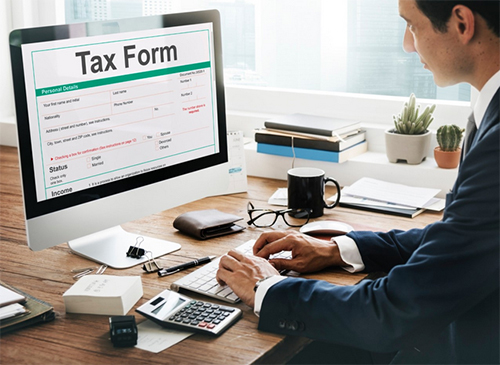Individual taxpayers frequently select self-filing of their Income Tax Return (ITR). Sadly, income tax law is a complicated area of law, and not everyone is an expert in it. As a result, it’s likely that people will make mistakes when completing an ITR online, which could lead to a failed tax return or even penalties in some cases.
By being aware of the mistakes you are likely to make or that you make frequently, you can avoid them. When submitting your ITR online, avoid these seven common mistakes.
- Utilizing a mistaken ITR Form:
Many taxpayers make the common mistake of using the wrong ITR form, which causes the IT department to reject their submission. Consequently, you should choose the ITR form carefully when filing your ITR. Examples of ITR forms and the appropriate users are shown below:
ITR Form 1: For salaried individuals
ITR Form 2: Salaried people who earn money from investment capital gains
ITR Form 3: Individuals who are self-employed and get income from business profits
2. Omitting to check the Form 26AS:
Form 26AS is a crucial document that contains information about your income, such as the amount of self-assessment tax paid, advance tax paid, tax deducted at source (TDS), and tax credits, if any. There may be occasions when the information on Form 26AS and the employer’s Form 16 do not match. Therefore, rather than relying solely on Form 26AS, it makes sense to contrast the information in Form 16 with the details in Form 26AS prior to submitting your ITR.
- Not including each and every savings account:
Many of us have multiple bank accounts, and if you have any overseas bank accounts, you must list them in your ITR. Any bank accounts that were closed during the fiscal year must also be disclosed. Money laundering and associated activities are reduced by disclosing this information. - Not revealing income sources:
There may be additional sources of additional funds aside from your business and wage. Capital gains, interest from fixed deposits, rent from residential or commercial property, etc. are all contained therein. Sometimes, taxpayers report only their major business income or wages, rather than all of their income. By law, you must list all of your sources of income. If you switched jobs during the fiscal year, you are required to report your previous employer’s earnings. - CPC is not receiving ITR-V:
If you are not using an Aadhar-based verification and digital signature, you must submit a signed copy of your ITR-V to the Centralized Processing Center (CPC) of the IT Department in Bangalore after 120 days of electronically filing your income tax return. If the ITR-V is not delivered to CPC, your file will not be recognized. - Inability to pay your advanced tax:
You won’t have to pay the advance tax because your employer will deduct the appropriate tax from your pay via TDS if you receive a salary. However, if you are self-employed or earn money other than salary, you are required to pay the advanced tax. If the advance tax is not paid in full, interest will be charged. - Failure to submit a revised ITR:
To correct filing errors, such as inaccurate personal or financial information, incorrect deductions, and so on, you can submit a revised ITR to the IT department. If you find any errors or mistakes while reviewing your ITR, you should file amended income tax returns.





















